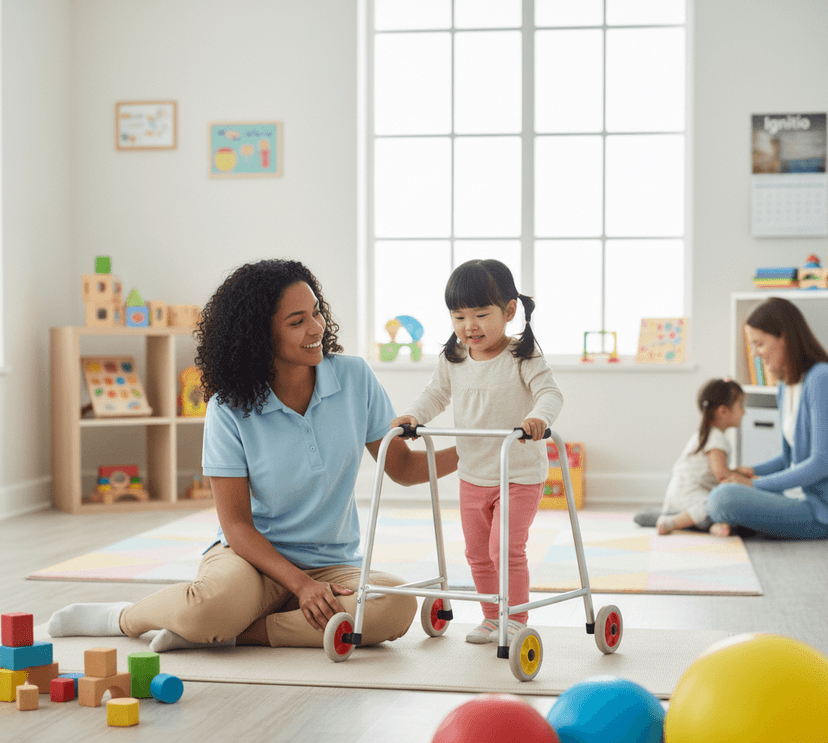Development Delays
Comprehensive Support for Your Child's Unique Journey
Development delays occur when children do not reach developmental milestones at the expected times. These can affect physical, cognitive, communication, social, or emotional development. Early identification and intervention services can significantly improve outcomes for children with developmental delays.

Early Intervention Services
Comprehensive support for children with developmental delays from birth through early childhood.
Core Overview
Understanding the fundamental aspects of Development Delays
What is Development Delays?
Developmental delays refer to significant lag in one or more areas of development compared to typical developmental milestones for a child's age.
Core Characteristics
Delays in reaching motor milestones
Slower development of language and communication
Challenges with social and emotional skills
Differences in cognitive development
Understanding the Spectrum
Developmental delays can range from mild to severe and may affect single or multiple areas of development. Early intervention is crucial for helping children catch up to their peers.
Recognizing Early Signs
Motor Development
- Not rolling over by 6 months
- Unable to sit without support by 8 months
- Not walking by 18 months
- Poor coordination and balance
Speech and Language
- No babbling by 12 months
- No single words by 16 months
- No two-word phrases by 24 months
- Difficulty following simple directions
Social and Emotional
- Limited eye contact or social smiling
- Not responding to name by 12 months
- Limited interest in other children
- Difficulty with pretend play
Our Comprehensive Services
Early Intervention
Comprehensive developmental support for children from birth to 3 years.
Key Features:
Physical Therapy
Improving gross motor skills, coordination, and physical development.
Key Features:
Speech and Language
Developing communication skills and addressing language delays.
Key Features:
Developmental Play
Using play-based interventions to support overall development.
Key Features:
Our Evidence-Based Treatment Approach
Individualized Family Service
Creating customized intervention plans that involve the whole family.
Key Benefits:
- Family-centered approach
- Home-based strategies
- Consistent support
- Natural environment learning
Multidisciplinary Assessment
Comprehensive evaluation by specialists from different disciplines.
Key Benefits:
- Holistic understanding
- Coordinated care
- Comprehensive planning
- Regular progress reviews
Play-Based Learning
Using natural play activities to support developmental goals.
Key Benefits:
- Engaging for children
- Natural skill development
- Motivation maintenance
- Real-world application
Success Stories
Maya's Milestones
2 years old
Maya wasn't walking or speaking at 18 months. After 9 months of physical and speech therapy, she's now running, climbing, and using over 50 words to communicate.
Outcome: Achieved age-appropriate motor and language milestones
Kabir's Progress
3 years old
Kabir showed significant delays in social interaction and play skills. Through developmental play therapy, he now engages with peers and participates in group activities.
Outcome: Improved social skills and peer interactions
Frequently Asked Questions
A developmental delay is when a child does not reach developmental milestones within the expected time range across one or more areas of development.
Some delays can be identified as early as 6-9 months, though comprehensive assessment typically occurs between 12-36 months.
While some children may catch up, early intervention significantly improves outcomes and helps children reach their full potential.
Causes can include genetic factors, prenatal conditions, birth complications, environmental factors, or unknown causes. Each child's situation is unique.